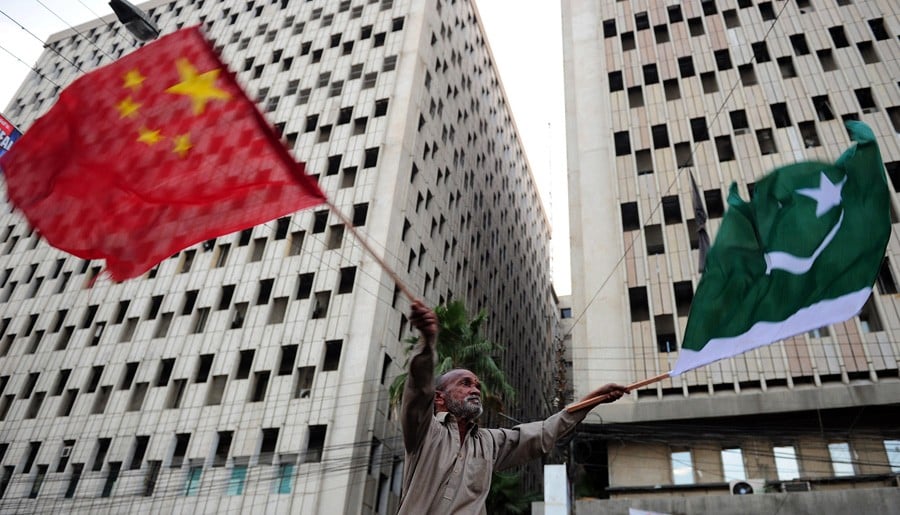
China’s political influence is expected to grow in the coming years on the back of its ever-expanding economic reach and clout

The rise of geo-economics in the post-Cold War era is underpinned by an appreciation of economic realities -- political ideologies today have ceased to hold the kind of fascination they did in the past. To a great extent, this is changing the course of international relations and the very structure of global commerce. The focus on achieving greater levels of economic security by increasing economic engagement is guiding the policies of those vying for and looking to maintain international/regional dominance.
China’s political influence is expected to grow in the coming years on the back of its ever-expanding economic reach and clout. The $46bn CPEC project is a potential game-changer for both Pakistan and China and is largely centred on the construction of infrastructure.
This will provide China with an alternative trade route that is both cheaper and safer as compared to the traditional one that passes through the Malacca Strait. The project is expected to be completed in 2030 and will also help generate 16,400 megawatts of electricity which will provide a lifeline to Pakistan’s crisis-stricken power sector.
The project holds promise with respect to its capacity to alleviate Pakistan’s economic woes and give it a much-needed push towards development and prosperity but at present, there is a lot of conflict on the issue owing to the secrecy of terms, conditions and even the scope of the project. For now, it is clear that once the project is completed, regional connectivity will see an improvement and linkages between China, the Middle East and Africa will be strengthened.
Energy security may be one of the topmost priorities of China; forging a national consensus on the project is Pakistan’s. To be fair, latching on can benefit Pakistan economically as well.
The unease around the construction of the CPEC project owes itself to China’s history of economic mercantilism and the Pakistani state’s lack of clarity in terms of national goals and interests. It wouldn’t be far from the truth to state that this does not qualify as a partnership of equals in this respect.
In December 2015, when Chinese president, Xi Jinping offered a loan and aid package worth $60bn to Africa with an aim to lending a helping hand in the fields of infrastructure, agriculture, and poverty alleviation in the continent, a lot of eyebrows were raised. China was accused of being a neo-capitalist and exploiting underdeveloped economies for resources. Even the positive outcomes of Chinese involvement -- the creation of employment opportunities and local development spearheaded by technology firms was written off.
While behind this growing economic footprint lies the need to wield power and influence -- goals most global heavyweights aspire for --there is also a feeling that the West’s bias is colouring perceptions.
That China is motivated by its desire to transform the ‘string of pearls’ idea into reality has always caused a lot of paranoia. The West still seems to be confused about how China needs to be viewed -- if it is looking to undermine the West (by creating the Asian Infrastructure Investment Bank, for instance, to rival the IMF and World Bank) or if it is simply playing by the rules of the game.
While there is no denying that in South China Sea and in the Pacific at large, there has been a surge in military presence and even regional stakeholders have expressed their concerns about not wanting to get caught in between conflicting interests of superpowers, there is also the question of exactly who is preaching to whom. The ‘encirclement of China’ has been a conscious policy decision of the global hegemon -- towards the end of 2015, the US also managed to ruffle feathers by bolstering its naval presence in the South China Sea.
The status quo may be feeling the heat and China’s plans to further economic integration may be taken as challenging the existing global pecking order, however, they need to be viewed and scrutinised objectively.
The CPEC project carries a lot of importance in this regard -- the geo-strategic location of Pakistan puts it at a position of great potential yet at the same time, also at the risk of inadequate realisation of that potential.